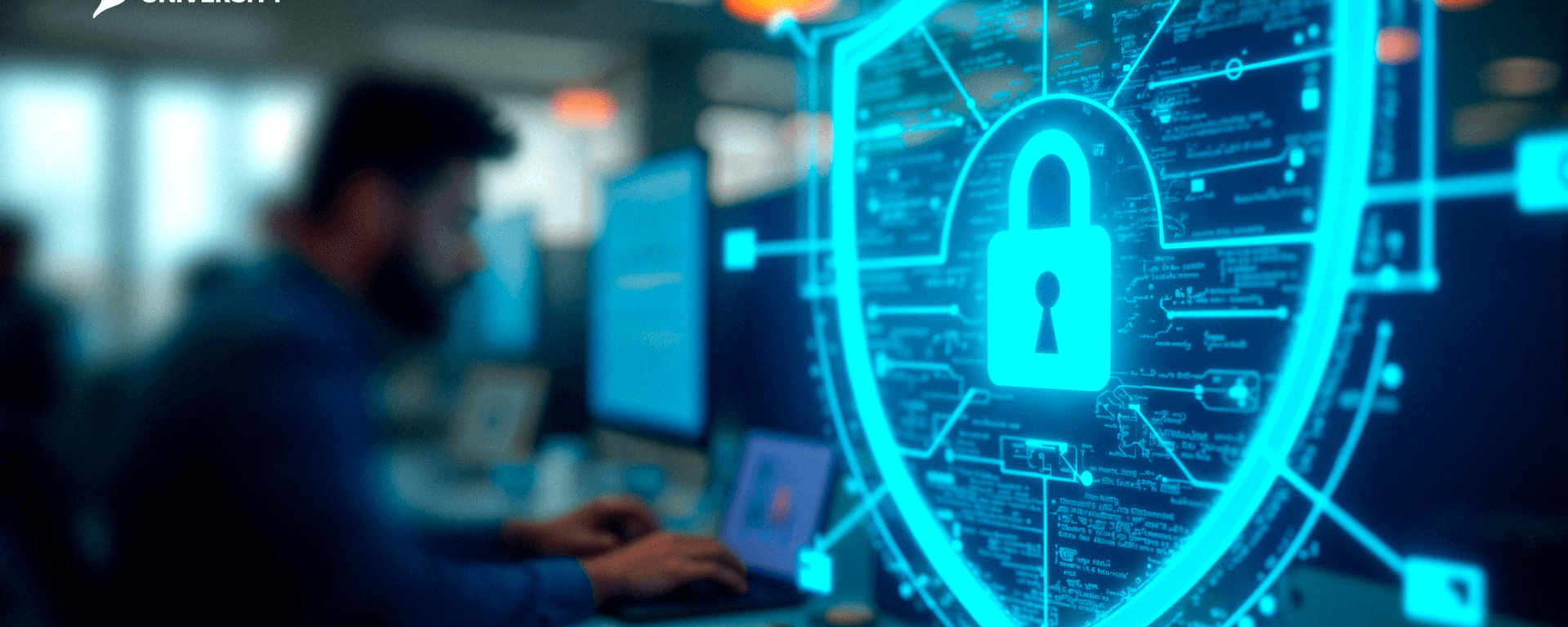In 2025, cybersecurity is a cornerstone of safeguarding digital ecosystems as technologies like artificial intelligence (AI), quantum computing, and connected devices reshape the global landscape.
The evolving threat landscape presents complex challenges, demands innovative solutions, and opens vast career opportunities for students.
Emerging Challenges in Cybersecurity
AI-powered cyberattacks are a major concern, with cybercriminals leveraging generative AI to create convincing phishing campaigns, deepfake scams, and adaptive malware that evolves to bypass defenses.
AI-driven phishing emails can mimic legitimate communications, posing risks to institutions managing sensitive data. These attacks are harder to detect, requiring advanced countermeasures.
Quantum computing introduces another challenge. As quantum technology progresses, it threatens to break widely used encryption protocols. Experts project that by 2030, quantum computers could decrypt data protected by current standards, endangering sensitive information.
The proliferation of IoT devices amplifies vulnerabilities. With over 75 billion IoT devices globally in 2025, systems like smart campus infrastructure and remote learning platforms create multiple entry points for attackers. Distributed denial-of-service (DDoS) attacks and data breaches are growing risks, particularly in environments with diverse, interconnected devices.
Supply chain attacks are also becoming more prevalent. Hackers exploit vulnerabilities in third-party vendors, such as software providers, to infiltrate networks. These challenges highlight the complexity of securing modern digital ecosystems.
Innovative Solutions
To counter these threats, organisations are adopting cutting-edge solutions. Post-quantum cryptography is a critical focus, with quantum-resistant algorithms like lattice-based encryption. These algorithms protect data against future quantum decryption, ensuring long-term security.
AI-driven security tools are revolutionising defences. Machine learning-powered Security Information and Event Management (SIEM) systems monitor networks in real time, detecting anomalies and flagging threats like phishing or malware. These tools reduce response times, enabling rapid mitigation of attacks. For example, AI can analyse patterns in network traffic to identify sophisticated threats that evade traditional firewalls.
Zero Trust Architecture is gaining traction as a robust framework. By requiring continuous verification of users and devices, Zero Trust minimises attack surfaces. This approach is particularly effective for securing IoT ecosystems and remote platforms, ensuring no entity is inherently trusted. Universities can deploy micro-segmentation to isolate critical systems, enhancing protection.
Cybersecurity awareness training is another key solution. Phishing simulations, secure coding workshops, and training programs empower students and staff to recognize and respond to threats.
Blockchain-based security is emerging for secure data sharing, particularly in research collaborations. Blockchain ensures data integrity and traceability, reducing risks of unauthorised access. This technology is especially valuable for protecting intellectual property and sensitive datasets in academic environments.
Career Scope in Cybersecurity
The cybersecurity field offers immense opportunities for students, with global cybercrime costs projected to reach $10.5 trillion annually by 2025. The demand for skilled professionals is soaring, making it an ideal career path for university students.
Cybersecurity analysts monitor and protect networks, with entry-level salaries in the US ranging from $60,000 to $90,000 per annum.
Penetration testers, who simulate attacks to identify vulnerabilities, are highly sought after, particularly for securing research data. Cryptography specialists focus on developing quantum-resistant algorithms, with roles at tech firms and government agencies offering salaries above $120,000 per annum.
Incident response specialists are critical for managing breach recovery, especially as ransomware attacks rise.
Compliance officers, blending technical and regulatory expertise, ensure adherence to data protection laws. For students interested in research, opportunities in AI security and quantum cryptography are expanding, with universities and organisations funding cutting-edge projects.
Certifications such as CompTIA Security+, CISSP, and Certified Ethical Hacker (CEH) boost employability.
In 2025, cybersecurity faces challenges from AI-powered attacks, quantum computing, IoT vulnerabilities, and supply chain risks. Innovative solutions like post-quantum cryptography, AI-driven defenses, Zero Trust Architecture, cybersecurity training, and blockchain are equipping organisations to stay ahead.
For students, the field offers a wealth of career paths, from analysts to cryptographers, with universities playing a pivotal role in preparing the next generation of professionals.
By fostering education and research, academic institutions can lead the charge in building a secure digital future.

This is an excellent overview of how AI and quantum computing are reshaping cybersecurity. The section on post-quantum cryptography was especially insightful!